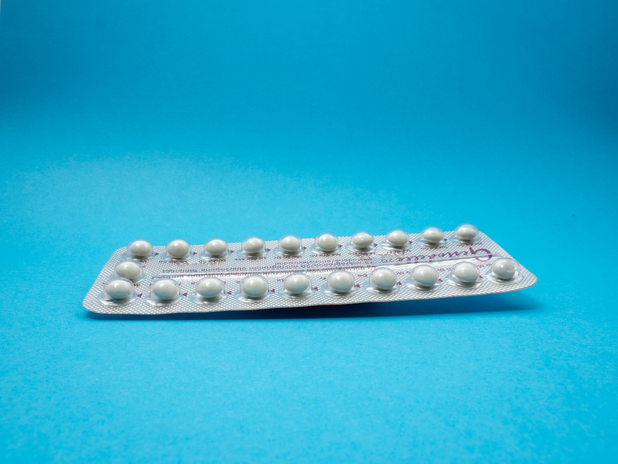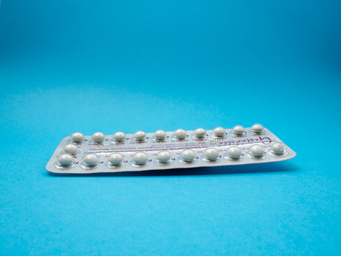With the copious amount of quarantine guidelines, D.C. Universities have had to adapt in order to provide contraceptive access to their students. Access is challenging, therefore universities, as well as student organizations, came up with alternate routes of providing contraceptives. Students studying at home or in the area have options for how they can get things like condoms, lube or birth control.
“This is a college campus, if there is one thing we know that students are doing its having sex,” Elianna Schiffrik, Senior at Georgetown and President of H*yas for Choice, said in an interview.
H*yas for Choice is a reproductive organization that is unrecognized and unfunded on Georgetown’s campus. “We are the sole provider of condoms, lube, safer sex supplies and comprehensive information on sexual and reproductive health,” Schiffrik said.
According to Georgetown University’s Health Services webpage, “As a Catholic and Jesuit Institution, the Student Health Center can prescribe hormonal contraceptive prescription if medically indicated but not directly for contraception.” Students can only receive contraceptives from organizations like H*yas for Choice.
The organization normally tables five days a week on campus during normal operations. Tabling just means they are out providing free contraceptives to students who drop by and ask for donations since they are unfunded by the university. Currently, Schiffrik said there are a limited number of undergraduate students living on campus, but many students living in the neighborhoods around campus. Therefore, they are able to table three days a week at two different locations in the immediate neighborhoods around Georgetown (which are also emergency contraceptive pickup locations.)
“We provide free emergency contraception,” Schiffrik said. “It functions as a peer to peer delivery system, so people email the board and request free EC (emergency contraception) and we deliver it to them free of charge.”
They have adapted this emergency contraceptive service for COVID so that students in need can pick up from a board member and at the tabling locations they are currently running.
During a normal semester Schiffrik said the delivery service averaged one a day “obviously on the weekends it would spike a little,” she said. Now with COVID it has only been about 20 deliveries so far for the semester, “this is a huge reduction, but I still think it certainly justifies having the service available that twenty people have needed it since then,” Schiffrik said.
Like Georgetown, Catholic University of America also does not provide direct access to contraceptives. “The school takes a very hard stance on that [birth control],” Regina Brennan said in an interview. Brennan is the President of Catholic University College Democrats.
“Our school very closely follows the teachings and practices of the Catholic Church, obviously since it’s Catholic University,” Brennan said. “Because of that when it comes to birth control you cannot get any on campus,” Brennan said. The teachings of the Catholic Church are abstinence and natural family planning and since Catholic University of America is mandated by the Vatican, they follow these guidelines.
In regard to how students deal with the lack of contraceptives, “There is no sexual conversation on campus ever,” Brennan said. “It is not even sex negative, sex neutral or sex positive it’s just nonexistence and for a lot of people I think it leads to this invalidity of sexual issues.” Brennan said how stressful it can be for friends when trying to get hormonal pills for endometriosis, “It reduces what might be uterine and vaginal health to reproduction,” Brennan said.
Unlike Georgetown and Catholic, at American University there are many ways a student can get birth control. The Health Promotion and Advocacy Center (HPAC) is a main resource. Pre-COVID the center provided free internal and external condoms, lube, dental dams and other barrier methods, as well as, contraceptive consultations. Pritma “Mickey” Irizarry, the Director of Health Promotion and Advocacy Center, conducts these consultations.
Irizarry is still available to conduct these contraceptive consultations virtually, but she has not had a single appointment with a student so far since the university went online. “It’s something that we could do more promotion for,” said Irizarry in an interview. HPAC relies heavily on peer educators to educate other students on the services and resources available at the center.
“If students are interested in learning more about what their options are, the pros and cons, the detail and background around choosing a contraceptive that’s fit for their lifestyle; they can schedule a one-on-one appointment, I can kind of walk through their options,” Irizarry said. “Then I can guide them to where they would access those options.”
The Student Health Center at American University is still open to students in the area. The health center does prescribe birth control to students however they do not offer IUDs or implants. For those students have to seek off campus resources.
The health center also provides the Morning-After Pill, to their female students. It costs around $45 for students because of AU’s $20 health center visit fee and then $25 for the pill, but Irizarry said it is the cheapest option for students compared to the other pharmacies in the metro area. “If you walked to the Tenleytown CVS, it’s $50 or $60.”
During normal operations the residence halls also have condom dispensers, but with the HPAC office being closed the staff has found it challenging to figure out how to provide those free materials to students.
“I did work with residential life to provide a bunch of condoms, dental dams and lube to residents living in emergency housing,” Irizarry said. “We also did it last week for the students that are in The Frequency (off-campus university housing).”
Despite the challenges of online learning HPAC has found ways to provide their students with some form of protection. The center has considered the option to mail contraceptives to students that need them. “We just have not had the capacity to do so at this point,” Irizarry said.
“If students did reach out and say I am in the D.C. or in this place and I don’t have access to condoms and I’d love to get them for free, I would be more than happy to mail them out myself and if we started to notice more request we could systemize it,” Irizarry said. For students not in the immediate D.C. area all local Planned Parenthoods provide free condoms.
Photos: Her Campus Media



